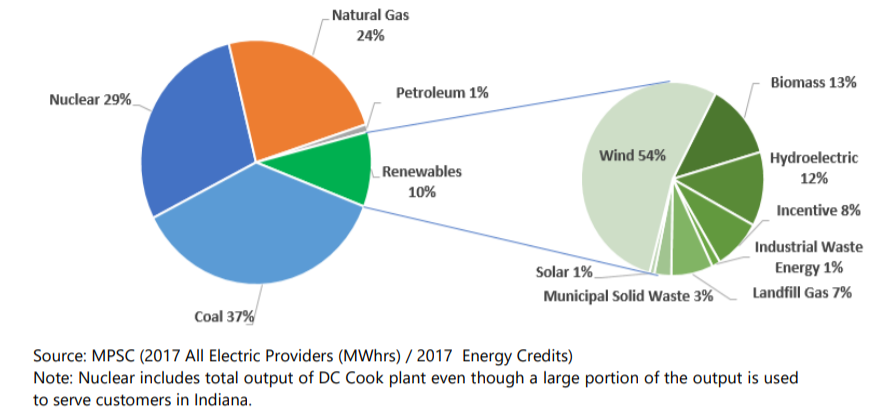Dive Brief:
Michigan leaders on Wednesday called for grid operators to prioritize regional reliability services after a January compressor station fire left the state’s utilities short on fuel during a Midcontinent ISO (MISO)-declared energy emergency.
In a letter, Democratic Gov. Gretchen Whitmer and Michigan Public Service Commission (MPSC) Chair Sally Talberg urged MISO and the PJM Interconnection to “ensure demand response meets its full potential” as well as expedite deployment of new renewable generation and proactive transmission planning for those resources.
The letter accompanied the release of a report from the MPSC outlining its assessment of the state’s power system, as requested by Whitmer in February. The report found the state’s resources were “adequate” in meeting demand, but laid out a number of recommendations for utilities, grid operators and other stakeholders on how to improve reliability.
Dive Insight:
Michigan facilities were put to the test in January when a Consumers Energy natural gas compressor station caught fire, taking the facility offline while the region was already facing constrained fuel supplies brought on by record low temperatures.
The incident raised concerns among state leadership over fuel security during cold weather events, and prompted an examination of how to best address resource adequacy and reliability.
“We’ve had a pretty significant shift in our electricity supply over the past decade and we expect that trend to continue,” Talberg told Utility Dive. The commission wants to make “sure that we’re understanding how we look at issues like diversity and our planning proceedings to determine what kinds of investments should be made going forward.”

Electricity resource buildouts have shifted away from coal-fired generation toward renewables and natural gas.
One thing the state wants to reexamine is its tariff structure, which gives equal consideration to deploying natural gas resources for home heating and electricity generation. Increased use of the fuel as an electricity source can constrain its ability to provide heating needs if the two services are competing equally, said Talberg, presenting a critical issue during extreme weather events.
“Unlike power outages, where the utility restores whatever’s broken on the system, and then the lights just all go back on … [managing heating outages] is an incredibly labor intensive process,” she said. “If you had an outage during a time when you had negative 25 degree temperatures, it could really overwhelm the utility to be able to manage that.”

Around a quarter of Michigan’s electricity resources come from natural gas.
In the face of increasingly extreme weather patterns across the Great Lakes region, having a diverse power grid to provide backup generation when gas fuels are being used for heating is also critical, the commission found in its report.
Timeliness is a key issue when it comes to bringing newer generation sources online, Talberg said, and the head regulator and governor called on grid operators to revisit rules and proceedings to expedite some of those processes.

Extreme weather scenarios have increased for the region over the past decade, making resource security during winter months crucial.
The letters’ recommendations “get to the changing power supplies, not just here in Michigan but across the region,” said Talberg, noting that transmission is a “critical” piece of that. Transmission approvals can take a long time, she said, and without that infrastructure, new resources’ ability to interconnect with the grid and provide critical backup power is delayed.
“Transmission … gives you a lot of flexibility from a reliability and resilience standpoint,” she said. The grid operators will “bring in power from other sources in the event that there’s unexpected weather in some parts of the region or … major equipment failures. And so it really is something that can help you ensure the broader region has more reliable supplies.”
Additionally, the commission called on utilities to develop a demand response program specifically for natural gas resources that more accurately pinpoints where demand reductions should occur on the system, rather than just making “broad emergency appeals” during a natural gas shortage, she said.
Seasonal demand management is another area where the commission hopes to work with grid operators to create a better system.
During this year’s polar vortex, MISO called for voluntary demand response shutoffs, but emergency curtailments should be handled differently in the winter than in summer months, said Talberg, especially because the program did not work as intended across the state.
“These programs can be really cost effective compared to, like, building a new power plant to meet demand,” she said. “But you need to be able to count on them when you need them. And so … we think it’s something immediate to work with the regional transmission organizations on.”






